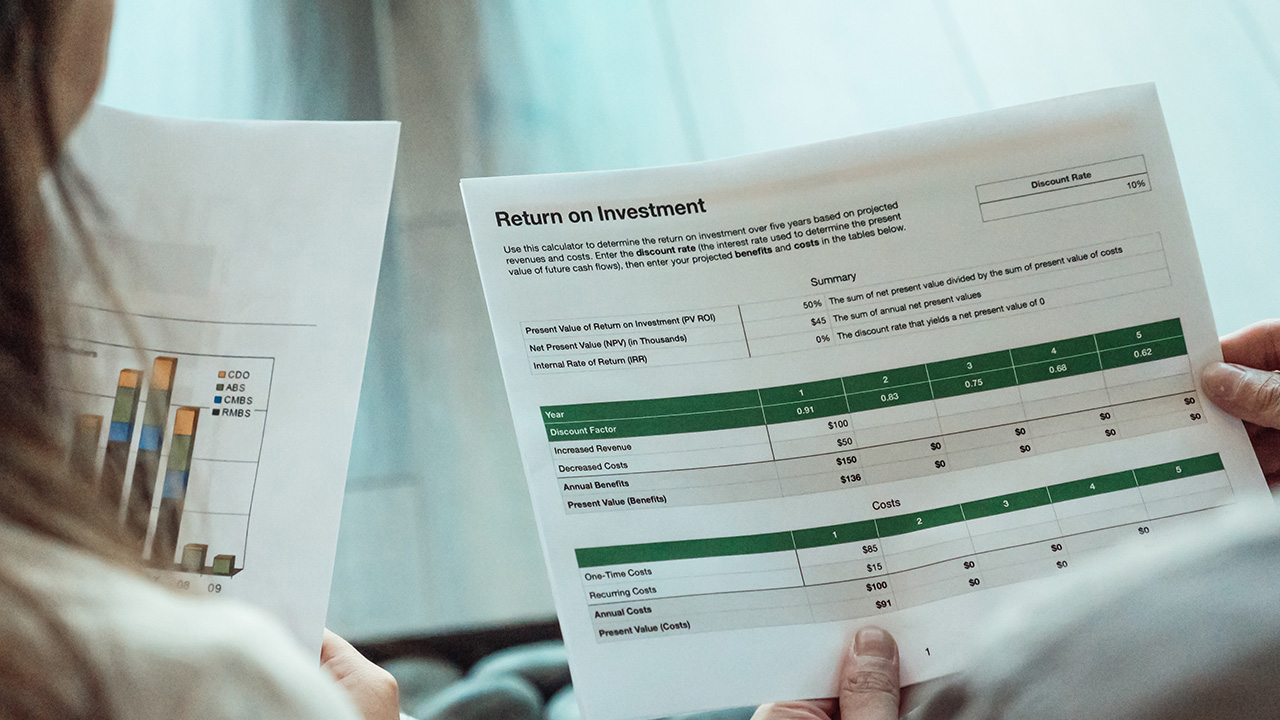A Recession and What It Means For You
The possibility of a recession on the horizon is worrisome. Understanding what happens before, during, and after a recession and making wise recession-proof investments helps to mitigate your recession risks.
Let’s determine if we’re headed to a recession, how to react if one does arrive, and how to make the best investment during a recession. But first, we need to define a recession.
What Is a Recession?
There are two components necessary for a recession - time and money. During a recession, economic activity experiences a significant downturn for months and sometimes years.
When a nation is seeing rising unemployment, a negative gross domestic product (GDP), falling retail sales, decreases in average incomes, and a downturn in manufacturing, experts will declare a recession. There is no doubt that recessions make life difficult but they are to be expected as part of the business cycle.
What Happens When There is a Recession?
It is valid to ask, “Why are we in a recession?” and “How does a recession affect me?” To get our answer, we need to have an objective look at what happens when there is a recession.
The early harbinger of rising inflation rates is easy to spot but other happenings signal a recession has arrived. These include:
-
Income
Ask the average person, “What happens when there is a recession?” and income will always be mentioned. People see that their income is not covering the rising costs of food, housing, and other basics of living. Some will experience a loss of work-related income and the gap between the wealthy, who are better equipped financially to ride out a recession, and the middle and lower classes becomes much more obvious.
-
Employment
An unemployment rate is the percentage of the total labor force that remains unemployed despite being able and willing to work. During a recession, companies are often forced to cut back on how many people they can keep employed and the unemployment rate rises.
-
Production/Manufacturing
The cost of materials rises during a recession, resulting in production and manufacturing declines. And when manufacturing declines, importing and exporting do as well. This has a far-reaching effect on the national economy.
-
Spending
Americans love to shop. Consumer spending accounts for 70% of the GDP and 40% of that is retail sales. During a recession, when people experience income shortages, they will spend less. This means that the GDP is negatively affected. It becomes a cycle of less income leading to less spending and that results in businesses being unable to keep their workforce and starting the cycle over again.
Are We Headed Toward a Recession?
Unless you’ve been cut off from the outside world, you’ve heard plenty of talk either about a coming recession or questions about why we are in a recession. So, where does the truth lie?
Economists, who closely monitor the indicators, generally agree that a recession is indeed in the forecast. However, there is no consensus on when it will happen and how severe it might be. The actions of the Federal Reserve play a significant role in how the economy acts and by the end of 2022, it had raised the interest rates from 0% to 4.5%. White the behavior of the Federal Reserve helps to combat inflation, the other side of the coin is that consumer spending is reduced.
A popular and reliable gauge of future economic activity is the Conference Board Leading Economic Index. Indicators fell by 0.3% in February - a continuation of an 11-month negative streak. In the previous year, it had dropped by 6.6%.
Another indicator that a recession is looming is that the Federal Reserve has assisted or loaned banks $300 billion; generally considered a sign that the banking crisis goes beyond the recent failure of three banks. Lending standards are being tightened and that can contribute to a dragging economy.
The Conference Board has stated that it believes there will be a recession in 2023 but the good news is that it’s predicted to be mild and short-lived.
How Does a Recession Affect Me?
Recession risks leave people asking “How does a recession affect me?” We are concerned, of course, with global events, but it’s natural to worry about the impact on individuals. Here are a few ways that a recession can affect you.
-
Cost of Living
If you’ve been grocery shopping lately, you know that it costs more to fill your cupboards. Rising prices happen just before or during a recession. Basic household expenses like groceries, power, gasoline, heating oil, and clothes all become pricier. During these times it becomes necessary to look for ways to stretch each dollar.
-
Loss of Job/Reduction of Hours
During a recession, most individuals revise their budgets and become quite strict about their discretionary spending. Businesses are forced to do the same and the result is that you may experience a loss of income from either having your hours reduced or being laid off.
-
Employment is Hard To Find
Workers have recently enjoyed a period where they controlled the labor market. Job seekers could pick and choose jobs and terms of employment. That luxury will come to an end with a recession. There will be more people competing for fewer jobs and it will take longer to secure employment.
Investments during a recession
Investing during a recession may feel a little counterintuitive with all this talk of strict budgets and tightening belts, but a recession is a great time to invest. The best investments during a recession have an eye on the long-term and managing risk.
Possible Investment Opportunities
It always bears repeating that every investment comes with risk and there is no such thing as recession-proof investments but there are certain industries that have historically weathered recessions better than others. Consider these investments:
1. Consumer Staples:
There are simply some things that just can’t be cut as people tighten their budgets during a recession and one of these is consumer staples. We need groceries, household cleaners, toilet paper, formula, diapers, etc. and the industries supplying these goods tend to come through recessions unscathed.
2. ETF (Exchange Traded Fund) or Mutual Fund:
The strength of these funds is diversification, making it less volatile than if you invested in a single stock or a handful of stocks. These are longer-term investments and while their value may decline somewhat during a recession, they bounce back as the economy improves.
3. Large Cap Stocks:
These are shares in some of the largest American companies that are valued at $10 billion or more. Because of their sheer size, they tend to be stable when the economy is volatile.
4. Dividend Stocks:
Where other stocks fluctuate during a recession, the value of dividend stocks doesn’t bounce around as much. These stocks also offer cash dividends which will give you some income while you are waiting out a recession.
5. Real Estate:
During a recession, buyers can often purchase real estate at a lower price and then when the market recovers and people are in better financial shape, they can sell at a profit. Interest rates are also typically lower during an economic downturn and it’s possible to get locked into a mortgage with a great rate!

What To Avoid During a Recession
You can see that, even during a recession, there are many unique and relatively safe investment options. We’d be remiss if we didn’t take a moment to point out that there are a few recession risks and these are three investments you should avoid.
1. Bonds:
There are good times and bad times to buy bonds. When interest rates are higher, bond prices are lower. Pay careful attention because one of the worst times to buy into bonds is when a recession is looming and interest rates are getting ready to rise.
2. Companies with High Debt Loads:
During a recession, the stock values of these riskier companies decline. Sales tend to naturally fall off and the debt burden may be too much to bear, resulting in the company defaulting on their debts.
3. High-Risk Assets:
A bet that the price of a stock will finish above or below a certain price by a stated time is called an option. They should be avoided during a recession. Yes, there can be high reward for the high risk but it’s very much a gamble in which you could lose your entire investment.
Connect Invest Short Notes
If you’re wondering about the best investment during a recession, Connect Invest’s real estate short notes need to be on your list. The short notes fund a diverse portfolio of real estate investments and you earn a passive monthly income from the fixed-rate interest payments that borrowers make. This monthly income begins one month after your initial investment which can be as low as $500.
You are in control with short notes investments which can be 6, 12, or 24 months in length. All have a fixed exit date and Connect Invest offers easy liquidity, allowing eligible investors to withdraw before the maturity date.
Final Thoughts - Ready to Invest?
Connect Invest short notes offer a diversified portfolio which aids in keeping risks low and reasonable. Getting started is easy and takes just a few minutes. Sign up for your account, verify your email and identity, and link your bank account to create your Connect Invest wallet.
Now you’re ready to choose the real estate projects you want to invest in! For more information you can read our short guide on getting started or you can contact us. Our team is ready to answer any questions you may have.

